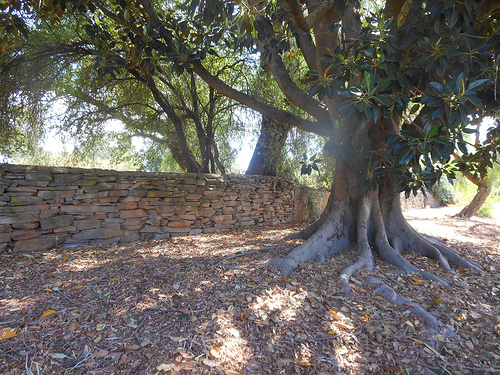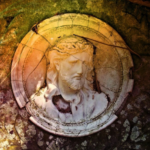We run our website the way we wished the whole internet worked: we provide high quality original content with no ads. We are funded solely by your direct support. Please consider supporting this project.

Why Did Jesus Curse the Fig Tree?
One of the strangest episodes recorded in the Gospels is Jesus cursing a fig tree because he was hungry and it didn’t have any figs (Mk 11:12-14; Mt 21:18-19). It’s the only destructive miracle found in the New Testament. What’s particularly puzzling is that Mark tells us the reason the fig tree had no figs was because it wasn’t the season for figs.
On the surface, it might look as if Jesus simply lost his temper and used his supernatural power to punish a poor tree whose only crime was being in the wrong place during the wrong season. Most commentators argue that the fig tree represented Israel and Jesus was symbolically warning that judgment was coming if it didn’t start bearing fruit. This is probably correct, but I don’t think it addresses the most profound significance of this event. If we understand this episode against the background of the apocalyptic thought of Jesus’ day, we can discern another layer of meaning.
Famine was widely believed to be the work of the devil in apocalyptic thought, and barren or infected fig trees became symbols of this fact (Mk 13:8; Rom. 8:35). What is more, many Jews of this time believed the Messiah would free nature from Satan’s grip, thus putting an end to things like famines. When we interpret Jesus’ cursing of the fig tree in this light, it seems evident he was proclaiming that he was the Messiah by “cursing the curse.” And in doing so, he symbolized that he was the long awaited one who would “destroy the devil’s work” (I Jn 3:8) and restore creation.
More generally, Jesus was thus demonstrating that, where God reigns, the demonic corruption of nature will be in the process of being overcome. And he was showing that, when the Kingdom is fully manifested, the whole cosmos will be delivered from the oppressive Powers. There will then be no more famine, droughts or hunger. Nature shall produce abundant vegetation and fruit, as it was always intended to do.
Something similar could be said of other “natural miracles” performed by Jesus. When Jesus miraculously fed the multitudes (Mk 6:30-44; 8:1-10) and brought about a miraculous catch of fish (Lk 5:3-10; cf. Jn 21:1-8), we can understand him to be enacting the truth that when the future Kingdom comes, humans will be reinstated in their proper place of authority, exercising dominion over nature. Consequently, there will no longer be any shortages of food.
So too, when Jesus raised people from the dead, and when he himself was raised from the dead, he was revolting against the reign of death and the one who holds the power of death (Heb. 2:14). And in doing this, he was pointing to a time when “the last enemy” would be utterly destroyed and death would be no more (I Cor. 15:26.)
So, Jesus cursing of the fig tree wasn’t the result of a temper tantrum. Jesus was cursing the curse and revealing himself to be the long awaited Messiah who would eventually free creation from the bondage of Satan.
Image by Royston Rascals via Flickr.
Related Reading

Why a “Christocentric” View of God is Inadequate: God’s Self-Portrait, Part 5
I’m currently working through a series of blogs that will flesh out the theology of the ReKnew Manifesto, and I’m starting with our picture of God, since it is the foundation of everything else. So far I’ve established that Jesus is the one true portrait of God (See: Part 1, Part 2, Part 3, Part 4).…

Overemphasizing Christ?
In response to my work, some have argued that I tend to overemphasize Christ. In light of the claim that in Jesus we have the one and only definitive Word of God and that no previous revelation should ever be placed alongside him or allowed to qualify what he reveals about God, some allege that…

The Starting Point for “Knowing God”
While it makes sense that Hellenistic philosophers embraced knowledge of God as the simple, necessary and immutable One in an attempt to explain the ever-changing, composite, contingent world (see post here for what this means), it is misguided for Christian theology to do so. By defining knowledge of God’s essence over-and-against creation, we are defining God’s essence…

Sermon: The Twist
In this sermon clip, Greg Boyd discusses how when you read a book with a twist ending, the ending reframes the entire story. The Bible is no different. In this sermon, Greg shows how Jesus’ message reframes how we are to understand the Bible, and he shows us why the Anabaptists shared this belief. You…

In the Wilderness of Religion
Eric Bryan via Compfight There are an awful lot of us in the Church today who are no longer feeling at home in Evangelicalism. Regardless of how you feel about World Vision’s hiring policy decisions, the spectacle of thousands of people discontinuing their child sponsorships (relationships with flesh and blood children in need) because of…

The Cosmic Scope of Spiritual Warfare
Yesterday’s post briefly introduced the reality that we live in the midst of spiritual warfare. This is the reality of being a part of creation where Satan prowls like a roaring lion (1 Pet 5:8-9). The Scriptures make it clear that all of creation is in need of redemption. While most Christians assume that the…
